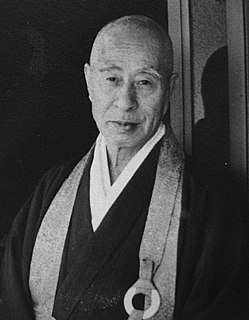A Quote by Frederick Lenz
The way of Zen is to become independent and strong. Don't rely on others for perceptions of life and truth. Do it individually. Go to a teacher of Zen to learn how to do that, not to get answers for individual life situations.
Related Quotes
I have my own way to walk and for some reason or other Zen is right in the middle of it wherever I go. So there it is, with all its beautiful purposelessness, and it has become very familiar to me though I do not know "what it is." Or even if it is an "it." Not to be foolish and multiply words, I'll say simply that it seems to me that Zen is the very atmosphere of the Gospels, and the Gospels are bursting with it. It is the proper climate for any monk, no matter what kind of monk he may be. If I could not breathe Zen I would probably die of spiritual asphyxiation.
I got interested in Zen when I was a teenage beatnik on the streets of San Francisco. And it was my interest in Zen, in part, that got me into the Marine Corps, because that was a ticket to Asia. So I spent a couple of years on Okinawa and began reading and thinking about how I wanted to go about conducting my life.



























